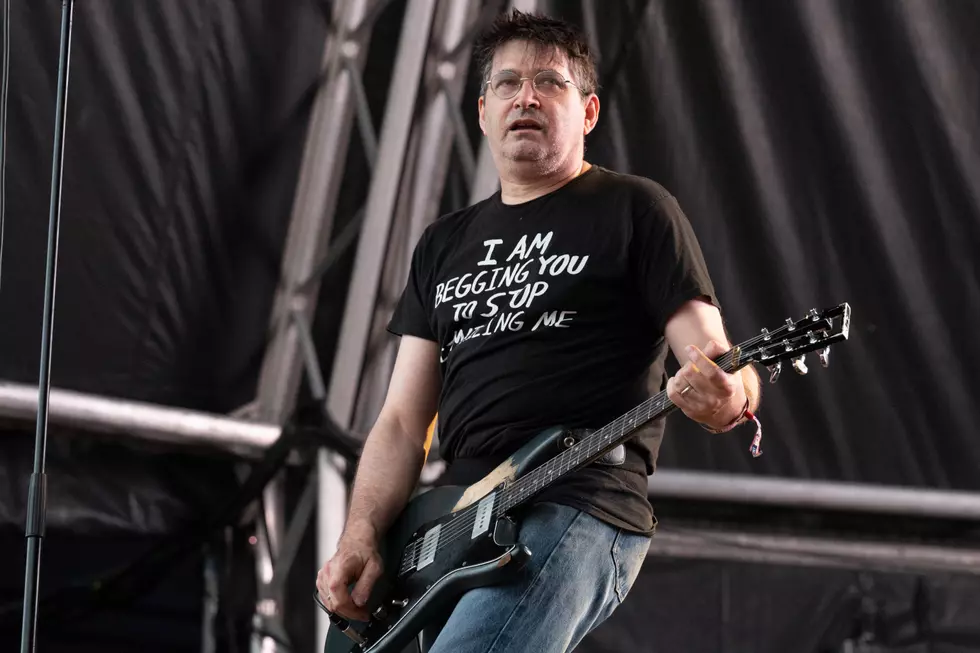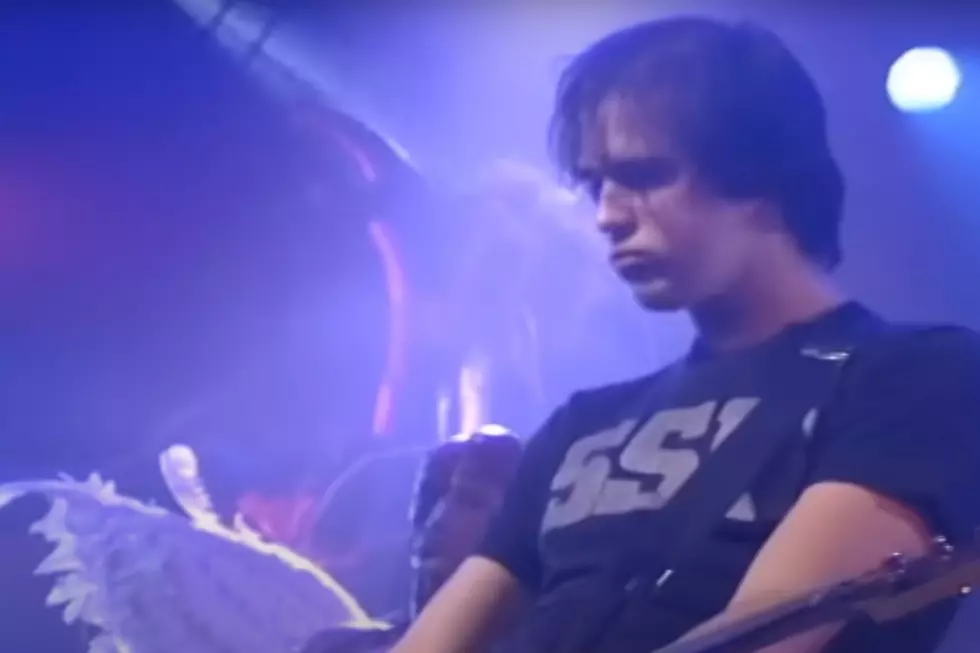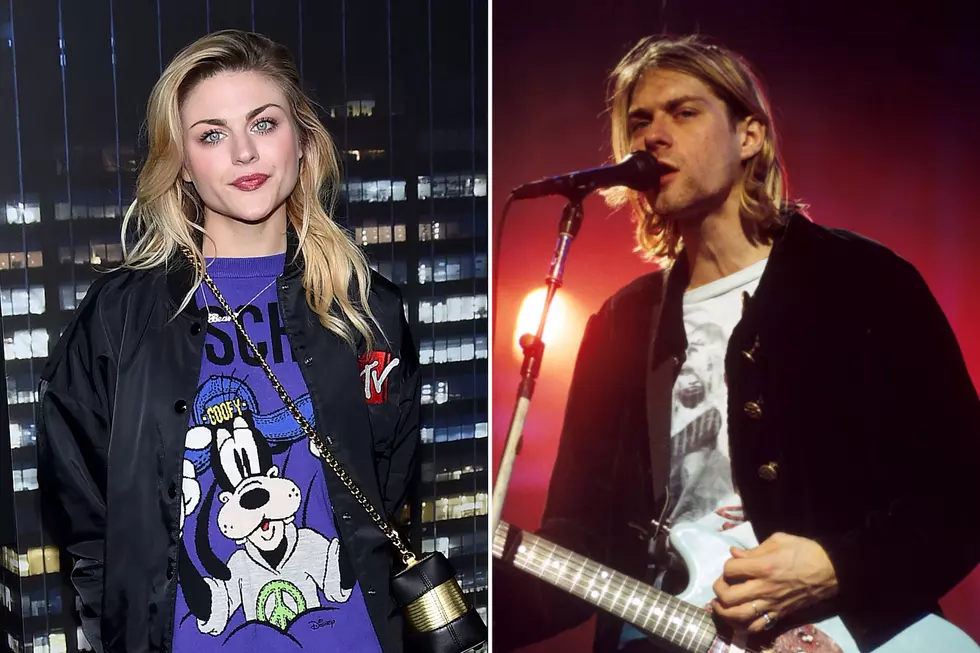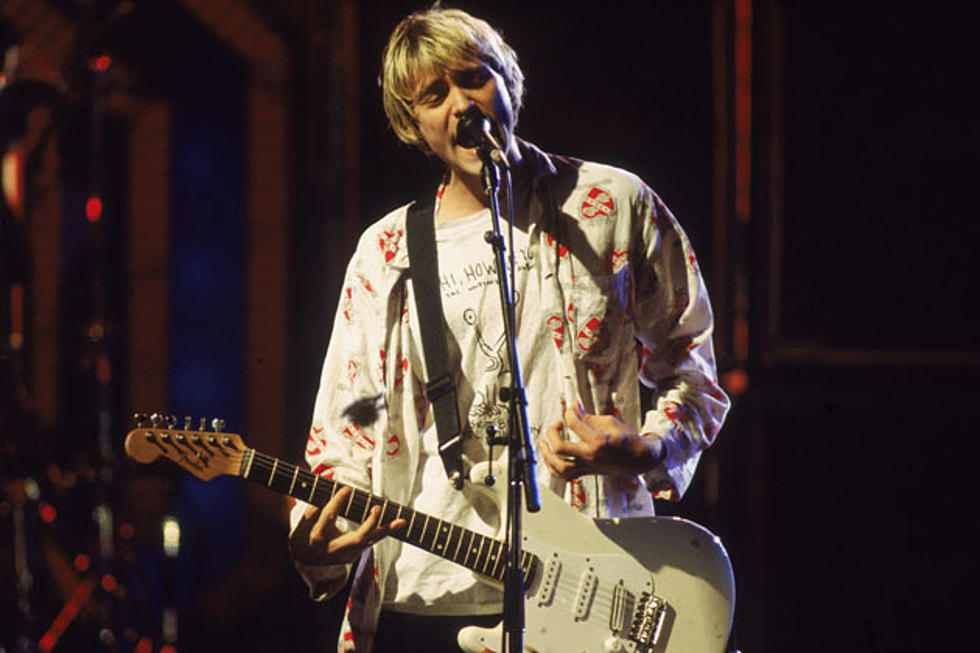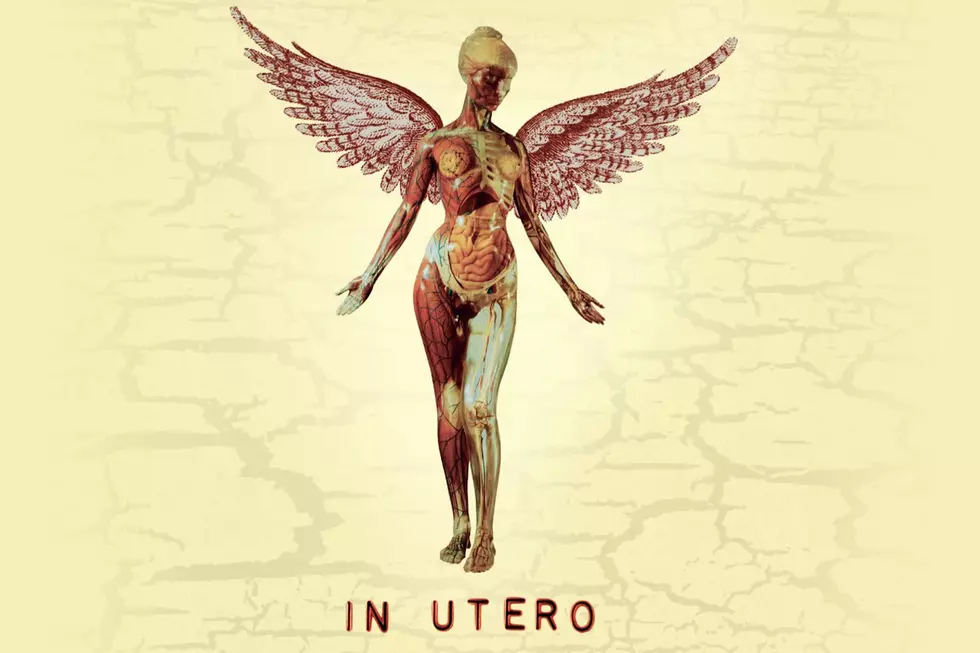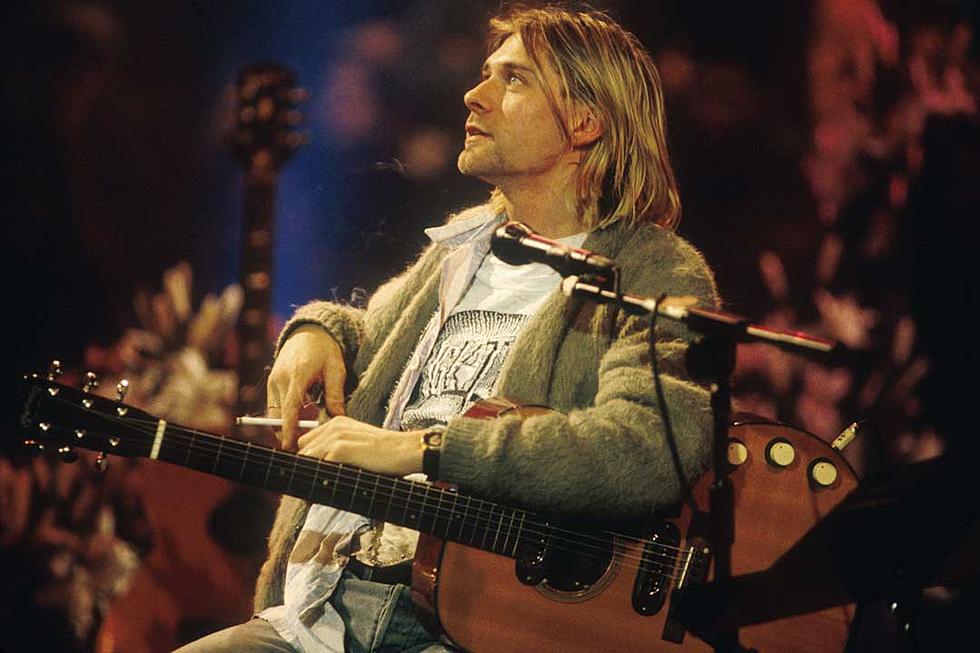
25 Years Ago: Nirvana Record Iconic ‘MTV Unplugged’ Session
Nirvana's performance at Sony Music Studios in New York on Nov. 18, 1993, achieved an unprecedented level of adoration for an MTV Unplugged set, and not just for the band's stunning performance.
Less than six months later, front man Kurt Cobain would be dead. MTV first aired the show on Dec. 16, and then showed it on almost endless repeat after Cobain's suicide the following April.
Almost everything about the performance was remarkable. From the funereal stage setting, chosen by Cobain, to the set list peppered with cover versions of relatively little-known acts the Vaselines and Nirvana’s tour buddies Meat Puppets – this was a bold statement. Cobain had such tight control over the performance that he even brought out Meat Puppets pair Cris and Curt Kirkwood to aid in performances of their tracks "Plateau," "Lake of Fire" and "Oh, Me." Those expecting household names as the special guests may have been disappointed at the time, but those three tracks are now as familiar to fans as almost any penned by Cobain himself.
As well as the “brothers Meat,” as Cobain referred to them, Nirvana were augmented by their regular tour cellist Lori Goldston and future Foo Fighter Pat Smear.
The decision to omit so many of Nirvana's massive hits from the set list failed to reduce the impact of the show, while their haunting rendition of David Bowie's "The Man Who Sold the World" is arguably many people's definitive version of the song. Cobain's acoustic guitar routed through the amp he regularly used for full, electric band performances gives the classic track a peculiar eeriness.
In the days before the performance, bassist Krist Novoselic was asked what he was most looking forward to about appearing on MTV Unplugged. "To show off our softer side, like scented toilet paper," was his reply. However, he and his bandmates – as well as the entire MTV crew – were expecting the worst, based on a series of underwhelming rehearsals.
Drummer Dave Grohl said years later: “That show was supposed to be a disaster. We hadn’t rehearsed. We weren’t used to playing acoustic. We did a few rehearsals and they were terrible. Everyone thought it was horrible. Even the people from MTV thought it was horrible. Then we sat down and the cameras started rolling and something clicked. It became one of the band’s most memorable performances.”
Grohl's heavy hands were partly to blame for the rehearsals falling flat. MTV Unplugged producer Alex Coletti's last-minute idea to buy the drummer brush sticks to replace his regular sticks proved to be a stroke of genius. On the night, the drumming perfectly underscored the band's performance – even if Grohl looked a little silly in a turtleneck and questionable, middle-parted ponytail.
The audience may well have turned up expecting to hear “Smells Like Teen Spirit,” although few could argue in retrospect that leaving it out wasn’t the right decision. Cobain responds to a yelled request from the audience for “Rape Me” by wryly saying, “I don’t think MTV would let us play that…”
The set list may, at first glance, have seemed – in typical Cobain fashion – like a deliberate attempt by the band to do the opposite of what MTV wanted and what everyone expected. It soon become clear it was a masterfully crafted running order that re-wrote the standard for an MTV Unplugged performance. “Jesus Doesn’t Want Me For a Sunbeam” in the style of the Vaselines slotted seamlessly into the set, but it was closing track "Where Did You Sleep Last Night" that left the most lasting impression. They followed the blueprint for the song that had been laid down by Lead Belly’s version, while Cobain screams the final verse and puts an exclamation mark on the set.
In the November following Cobain’s death, the recording was released as an album, MTV Unplugged in New York. It debuted at No. 1 on the Billboard 200, selling more than 300,000 copies in that first week -- the highest first week sales of Nirvana's career.
Of course, everything about the performance is underpinned by Cobain dying so soon after the recording. "Everyone knew this was special," Coletti said in the Bare Witness documentary included in the DVD of the program. "Everyone knew we just saw another side of a very important band. But obviously that gets magnified in the context of what happened five months later."
More From Ultimate Classic Rock


